
Road to Recovery
Our focus for this Men's Health Week depression photography campaign is showing men what helped the most in other men's recovery.

Our focus for this Men's Health Week depression photography campaign is showing men what helped the most in other men's recovery.
"Recovery isn't a straight road, but that doesn't mean you won't get to where you need to be.”
An important but often overlooked part of #MensHealthWeek is men’s mental health.
Men account for three times the number of suicides as women, with depression being a leading cause. Getting help with depression is no different than getting help with any other serious illness or injury, like diabetes or a broken leg – if something needs fixing, get it fixed.
This year’s campaign focuses on what helped men on their road to recovery from depression, revealing the processes by which guys figured things out to get their lives back on track.
Huge thanks to all the photographers and models who helped create these images in support of men fighting depression.
To help raise awareness, the City Of Vancouver, BC, Canada has also proclaimed June 11th “Men’s Mental Health Awareness Day” for the fourth year in a row!

“Something that helped me in the later stages of my fight with depression and anxiety was to realize that I am not my thoughts, they do not define who I am; my thoughts are not necessarily true or a representation of reality. Meditation helped me get in touch with “the real me”, the stillness inside, and combined with physical exercise helped me get in touch with my body. These bonds are a great foundation from which it’s easier to manage negative thoughts and moods; to not pay as much attention to them and not letting them take control.”
– Tommy Ingberg, visual artist, Nyköping/Stockholm, Sweden.![]()
![]()
![]()
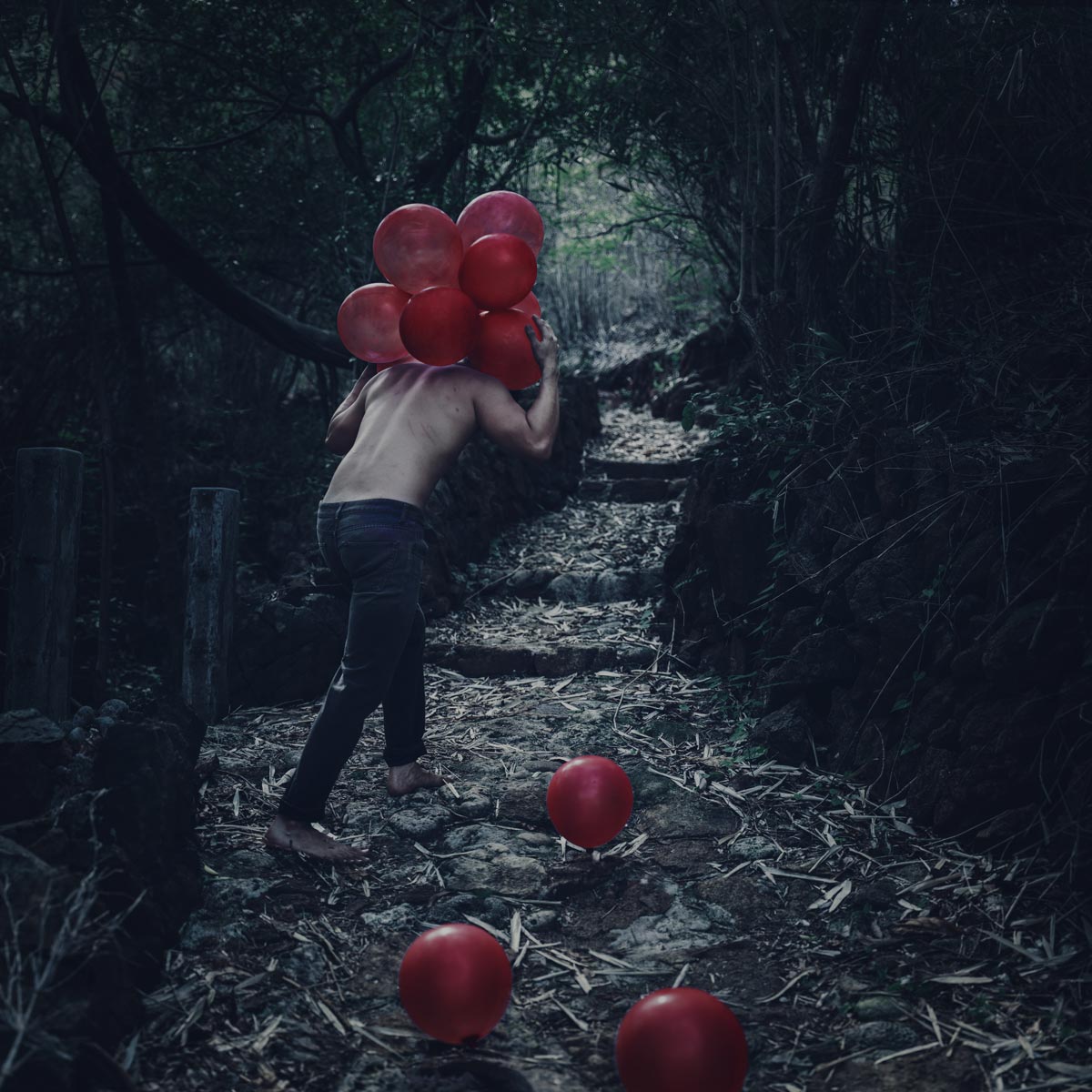
‘Lighten the Load’
“It isn’t that easy to recover from depression. It’s like someplace where no one wants to stay, but it’s difficult to figure out where the escape path is. It makes us feel as if we have this heavy burden upon ourselves to carry.
But if we persevere and, one by one, let go of the thoughts that hinder us from being happy, the lighter we would feel and the easier it would be for us to choose the right path. On the contrary, the more we hold on to those thoughts—dwelling in such a dark place in our mind and memory—the harder it becomes for us to find a way out.”
– Mike Alegado, conceptual and portrait photographer, Manila, Philippines.![]()
![]()
![]()
![]()

“Crawling through the darkness, I find myself bound tightly by many threads of anxiety, panic ensues draining the little energy remaining, I tumble into a deep sleep. Dreaming of change, transformation, I dream of being free of the darkness and the threads of anxiety that hold me so tight.”
– Adam Williams, photographer, Sydney, Australia.![]()
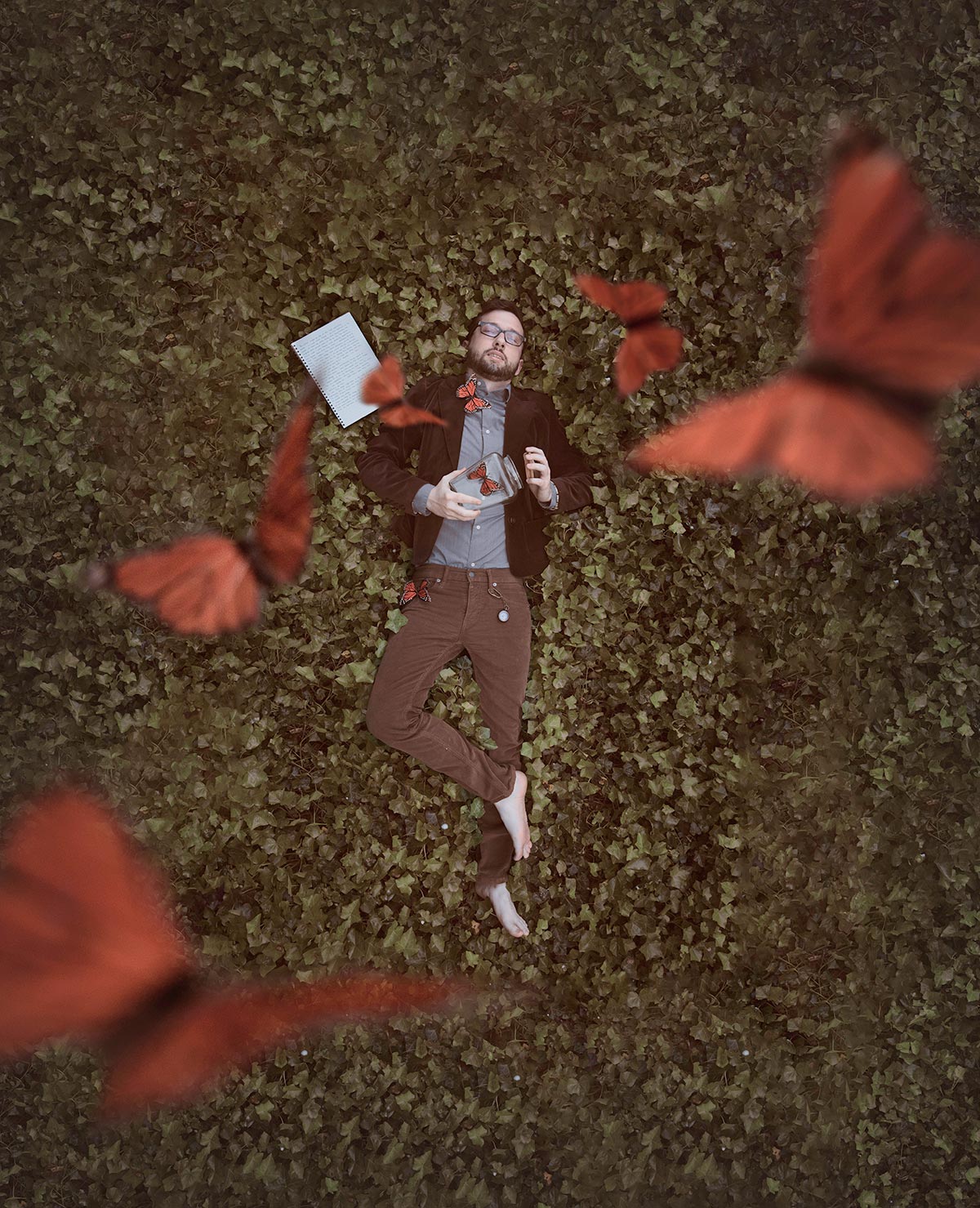
“Keeping things in is something I’ve been chipping away at for as long as I can remember. I’ve been able to release that grip on my darkest of feelings through writing, poetry, photography, or even just being in the same space as someone who is just there to listen. It’s not always easy, but I know I always have an outlet no matter where I am in life.”
– Jonathan Chapé, fine art/conceptual and fashion/portrait photographer, Portland, United States.
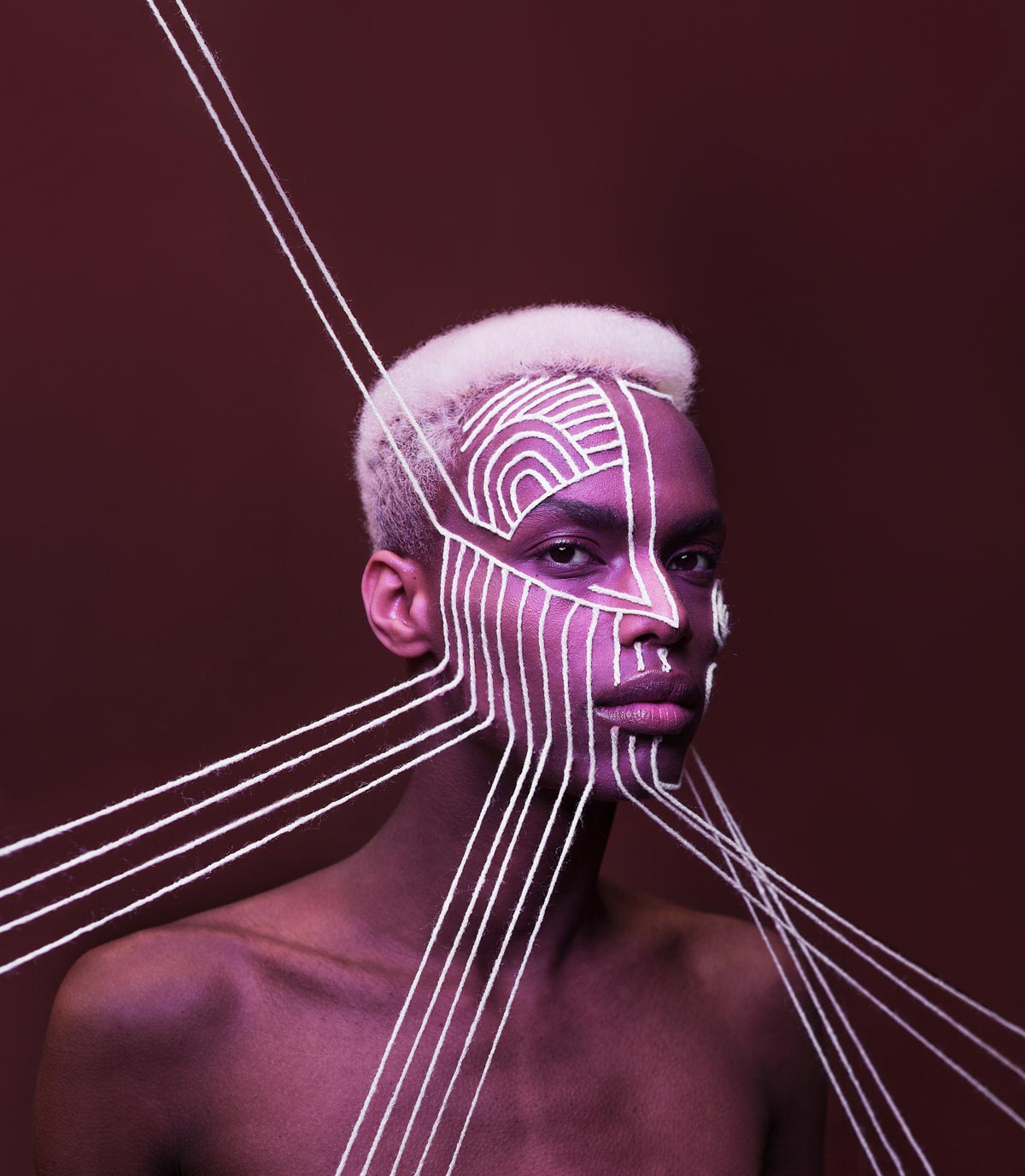
“We are all connected, this is evident from our interactions daily- the power of a simple smile, or a bump from a stranger passing by. Small interactions build to form ideas, perspectives, and changed experiences. The road to recovery requires opening up and interacting with others; since a young age I was taught to ‘stay in my lane’, however as I’ve grown up, I’ve realized that building friendships, reaching out to new people, and becoming involved in new communities has been the strongest source of growth and overcoming my fears and hurdles. Don’t be afraid to branch out and embrace something new. Recovery doesn’t happen overnight, but even with small steps we can travel miles over time.”
– Rob Woodcox, surreal portrait and fine art photographer, Oregon, United States.![]()
![]()
![]()
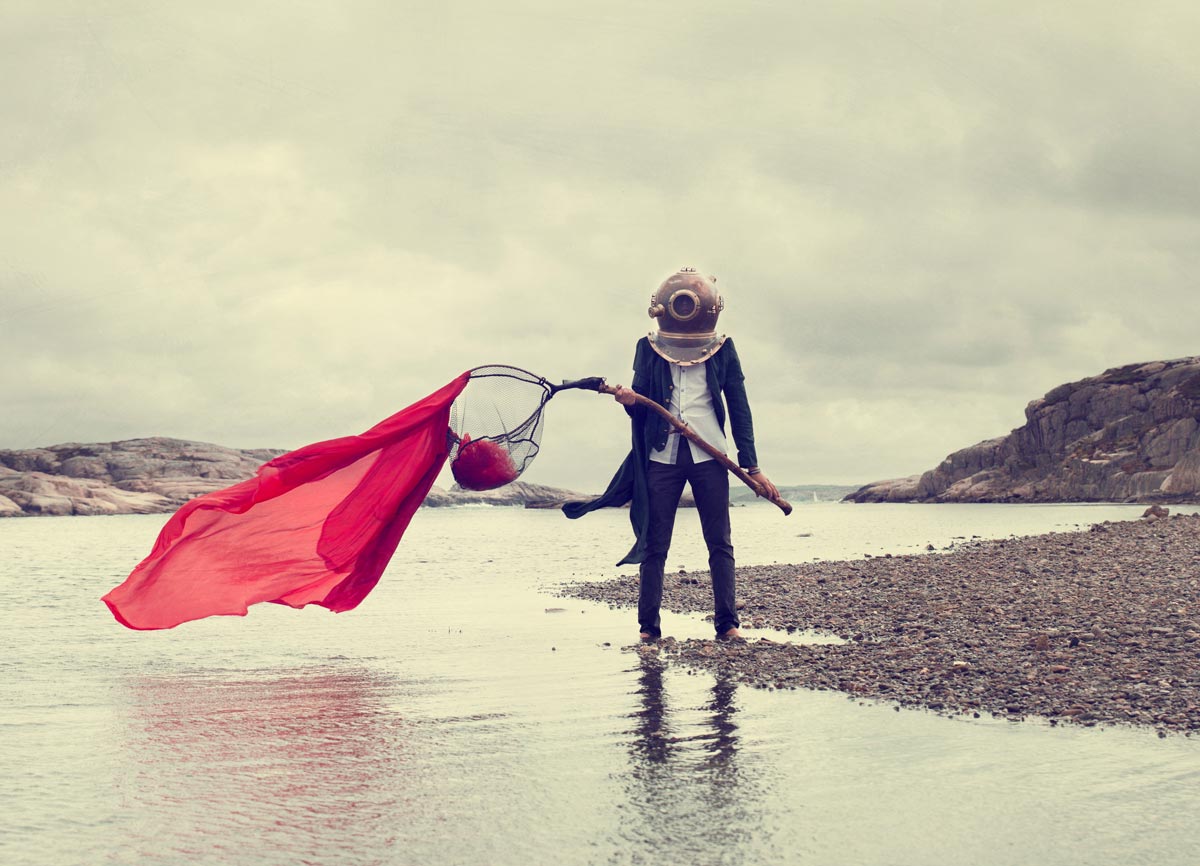

“These two images were originally created to raise awareness about environmental issues we face today, in this context though the images represent the psychological environment and toxic culture many men face when struggling with mental health issues like depression. The subjects in the images can be seen to be trying to find their way through depression, to discover a path towards recovery. Though they may encounter trials and struggles along the way, I hope all men who are fighting depression can continue to pursue their recovery and work towards the better health everyone deserves.”
– Maren Elize Klemp, fine art photographer, Oslo, Norway. ![]()

“Mental health is important to us because it’s something that is extremely relatable to so many others and ourselves. We’re participating in this project to show others, and especially men, that they’re not alone in what they go through. Speaking up and bringing more light to an issue, that is often disregarded, is one of the most important parts of helping those affected.” Dan (holding the moon) uses deep breathing to focus his mind and manage issues with anxiety and ADHD. Anton (holding star) has found therapy to be helpful with his recent diagnoses of depression.
– Dan Saab, circus performer ![]() , Anton Vayvod, software engineer
, Anton Vayvod, software engineer ![]() , and Kristina Kashtanova, photographer
, and Kristina Kashtanova, photographer![]()
![]() , New York, United States.
, New York, United States.
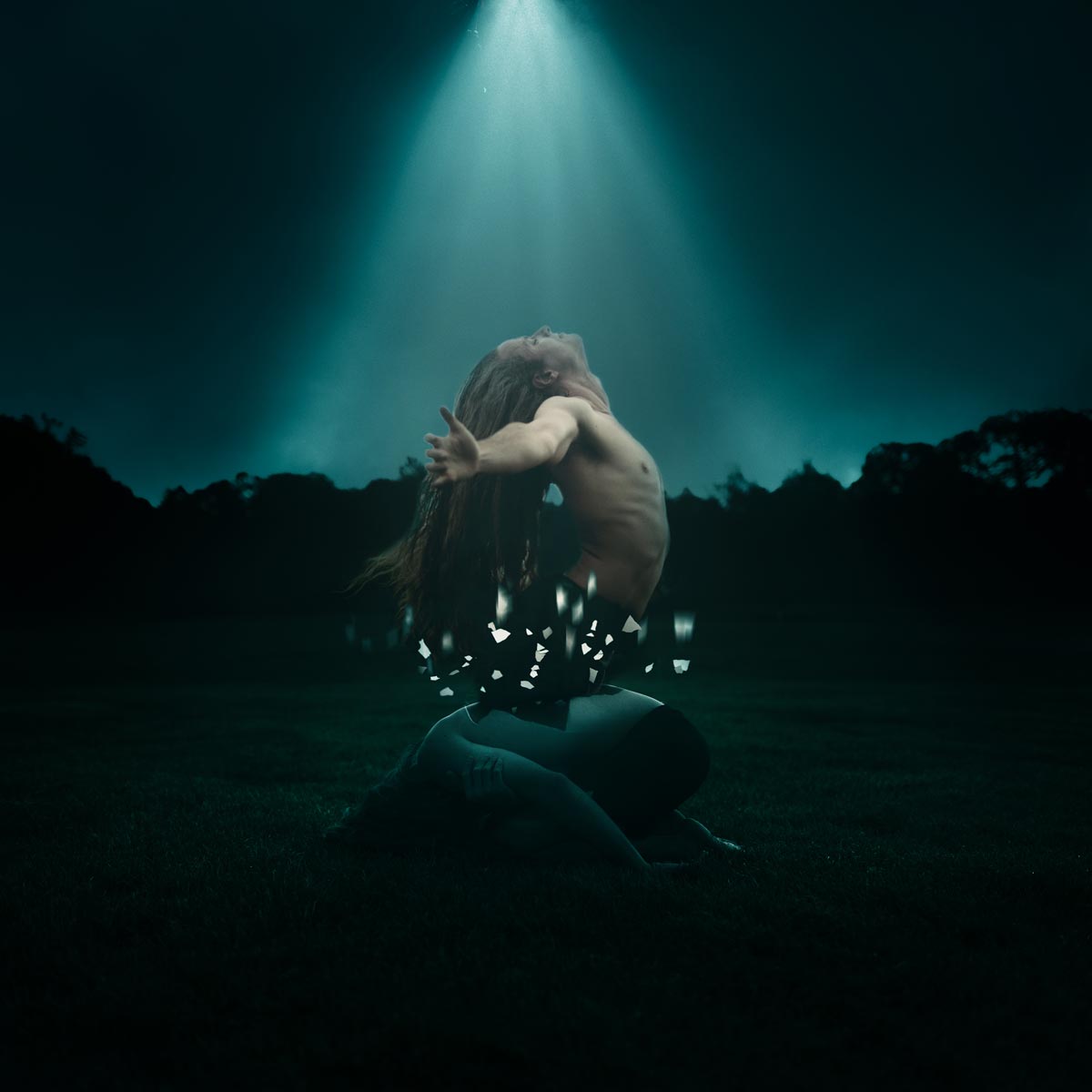
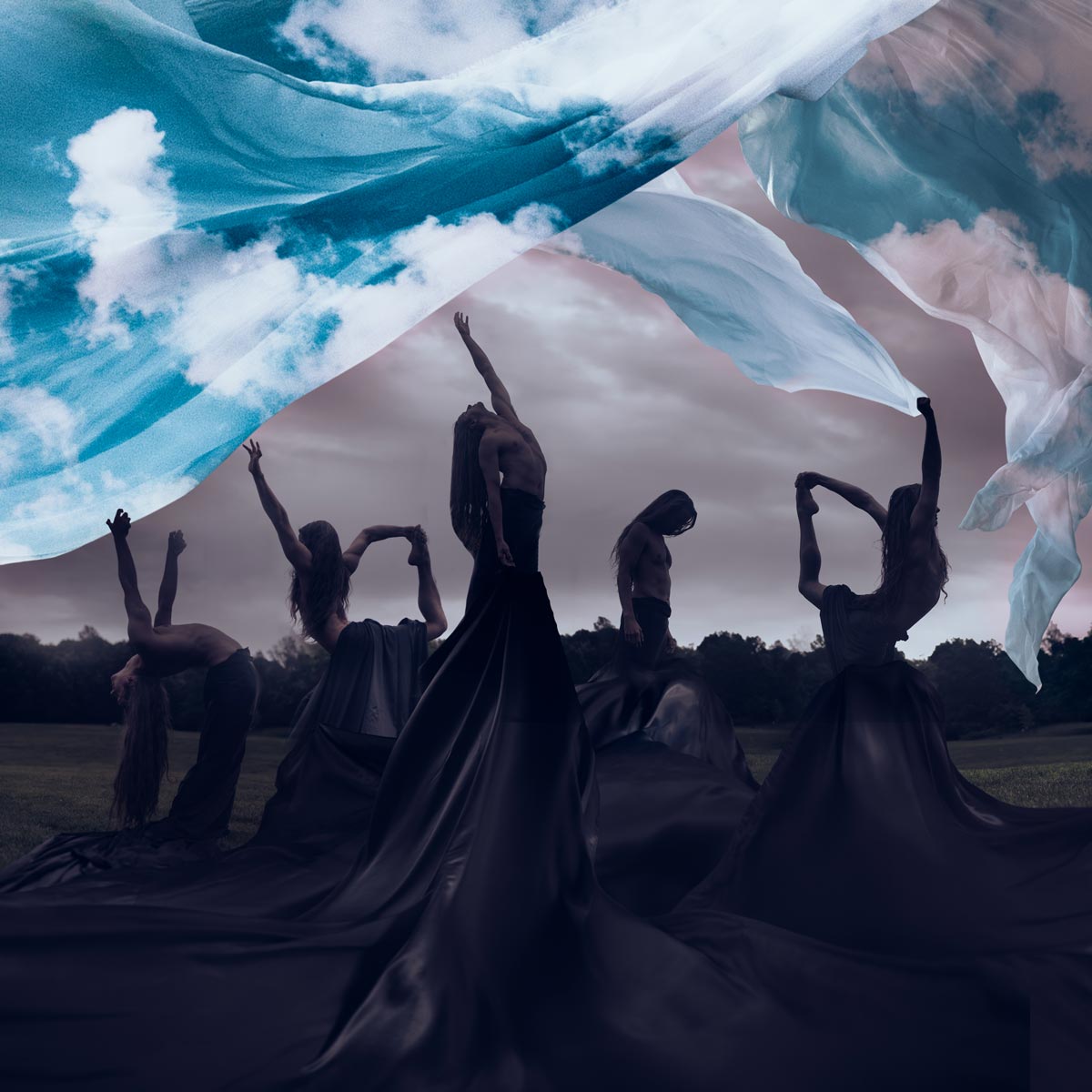
“I felt like a prisoner to my depression at a very young age. Outside of alcohol and drug abuse, I didn’t think there was a way to escape the constant pain of being alive, and my addictions always took more than the fleeting relief they provided. At the age of 23, I had completely lost the will to live.
Rock bottom was a trip the ER, but it was also the beginning of my rebirth. Having nothing left to lose, I began to be honest and open with family, friends, and doctors and followed through on what they asked of me. Honesty, sobriety, and a willingness to try the solutions that had worked for others brought me back into the stream of life and gave me the inspiration to help others who are themselves in similar situations.
Ten years later, sobriety, movement, spirituality and working with a therapist I have built a long relationship with, continue to help me find and share the light.”
– Daniel Mullaney, yoga teacher, and Kristina Kashtanova, photographer![]()
![]() , New York, United States.
, New York, United States.
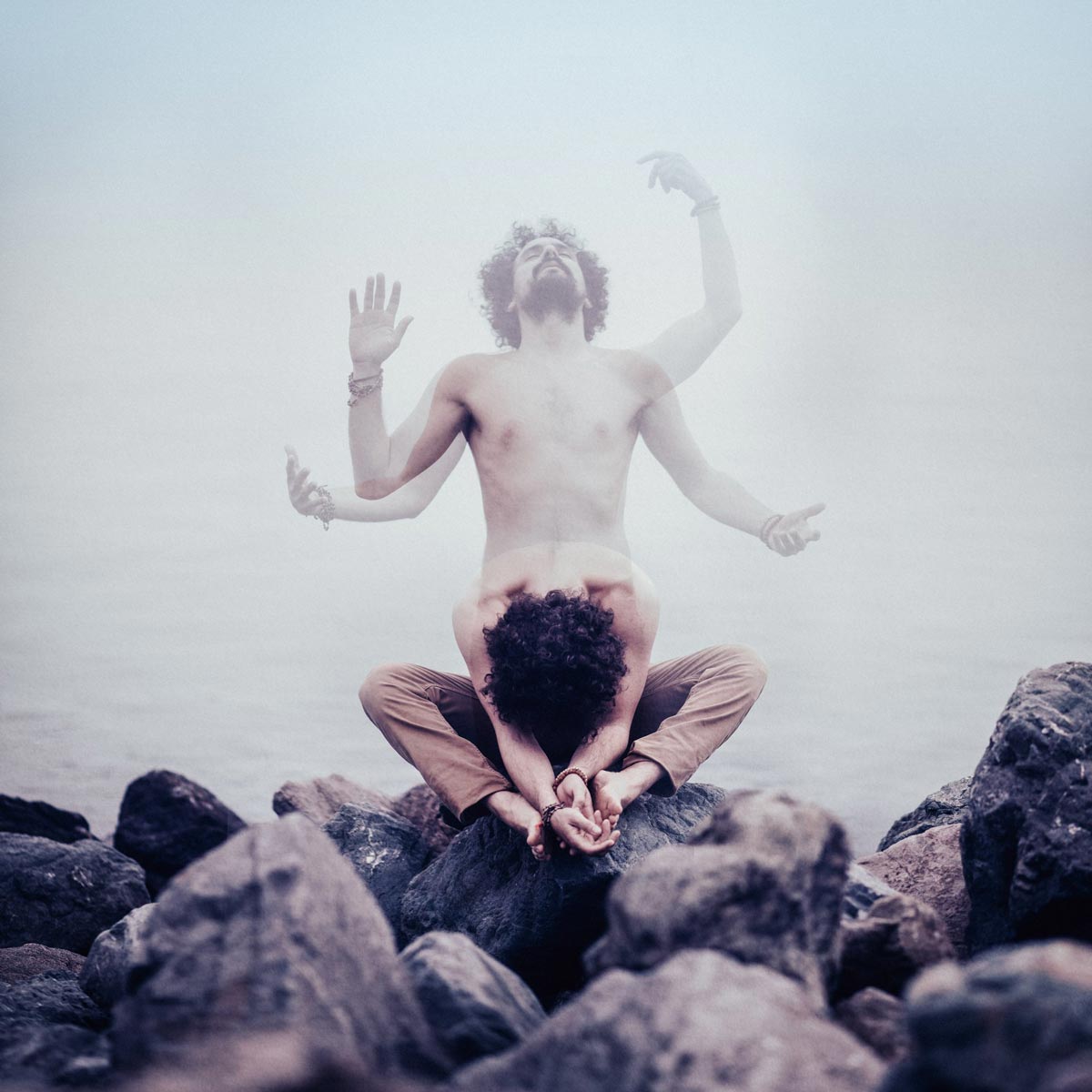
“Reaching out for help and finding support was crucial on my road to recovery. That was the first step that gave me back the strength to then be able to focus on my art and channel all my processes into creating. It was art and community which pulled me out of the darkness and reminded me who I was again.”
– Fernando Samalot, photographer ![]() , and Kristina Kashtanova, photographer
, and Kristina Kashtanova, photographer![]()
![]() , New York, United States.
, New York, United States.
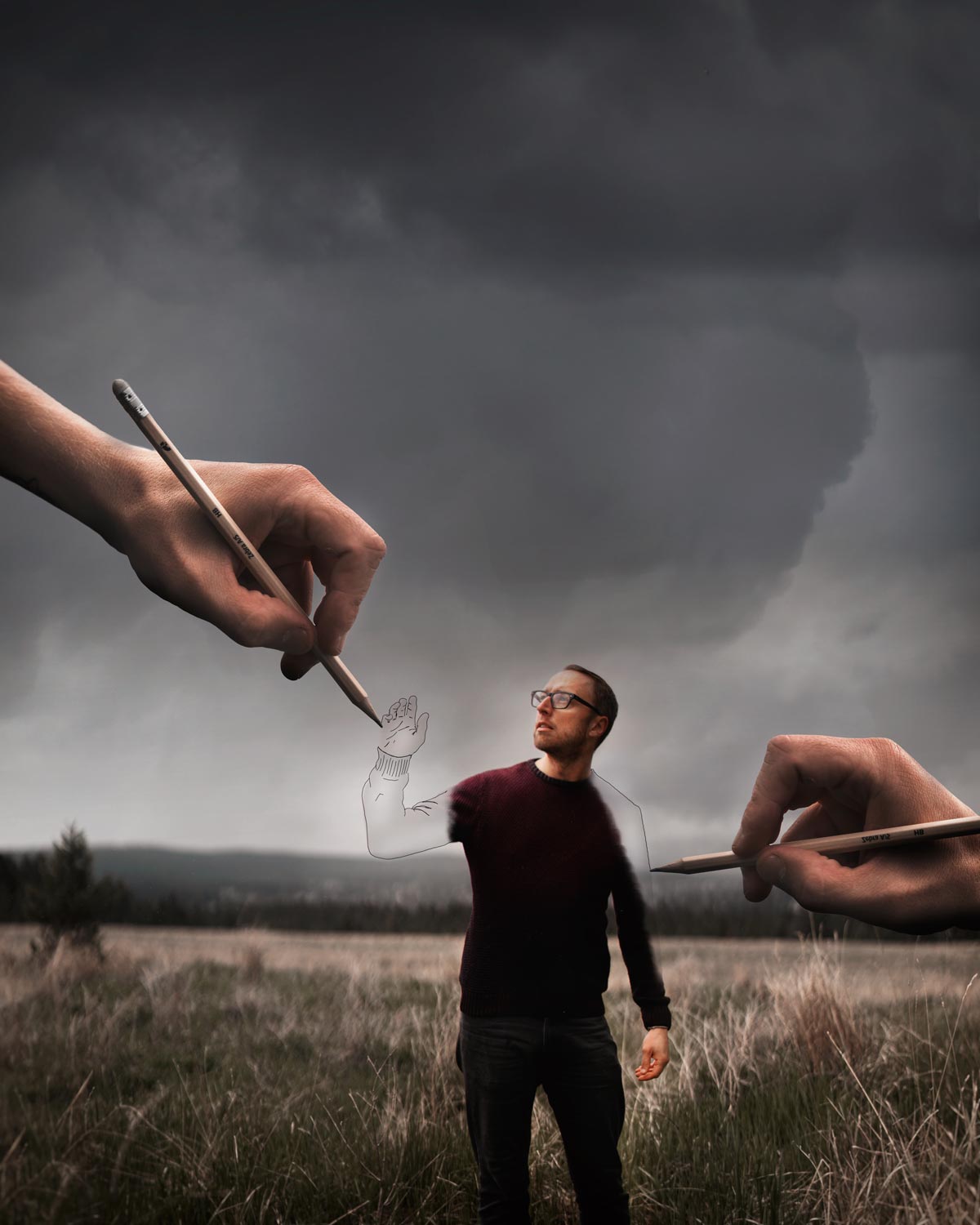
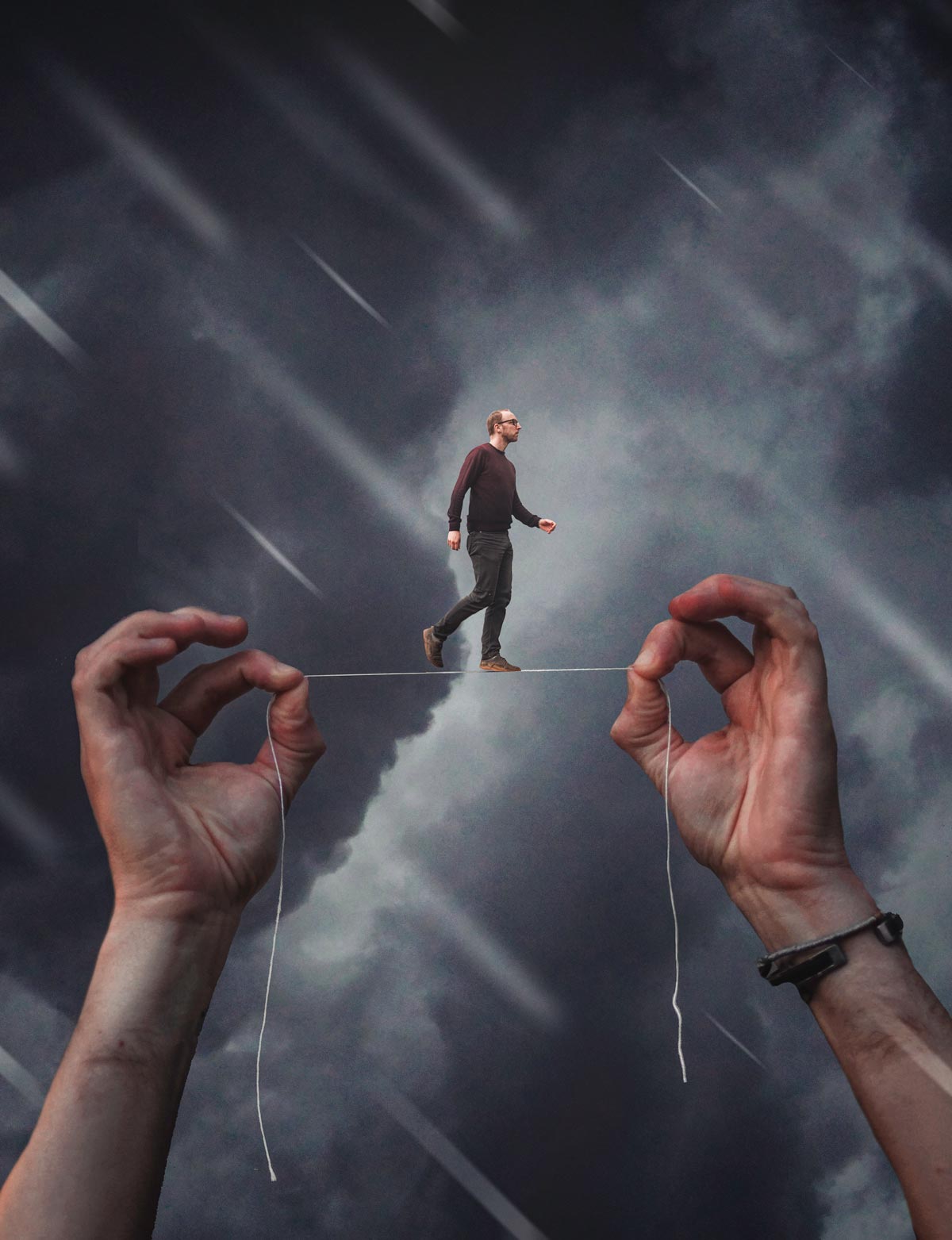
“When I first really started to notice my own mental health starting to suffer and my anxiety and depression start rising, I felt as though I was losing the reality of who I am. I couldn’t remember the good things about myself or the accomplishments, the good memories or anything positive to help calm that part of my mind down.
It finally took reaching out to my friends and family, telling them that I was feeling really unwell, for it to change and a big part of that was them filling in those pieces that I felt I’d lost sight of. They helped me by reminding me of all the things that I bring to the world and the good memories that we shared. This connection with those that I trust and who know me really helped me feel like I wasn’t alone, that they were propping me up on this difficult walk and time in life.”
– Joel Robison, conceptual photographer, British Columbia, Canada. ![]()
![]()
![]()
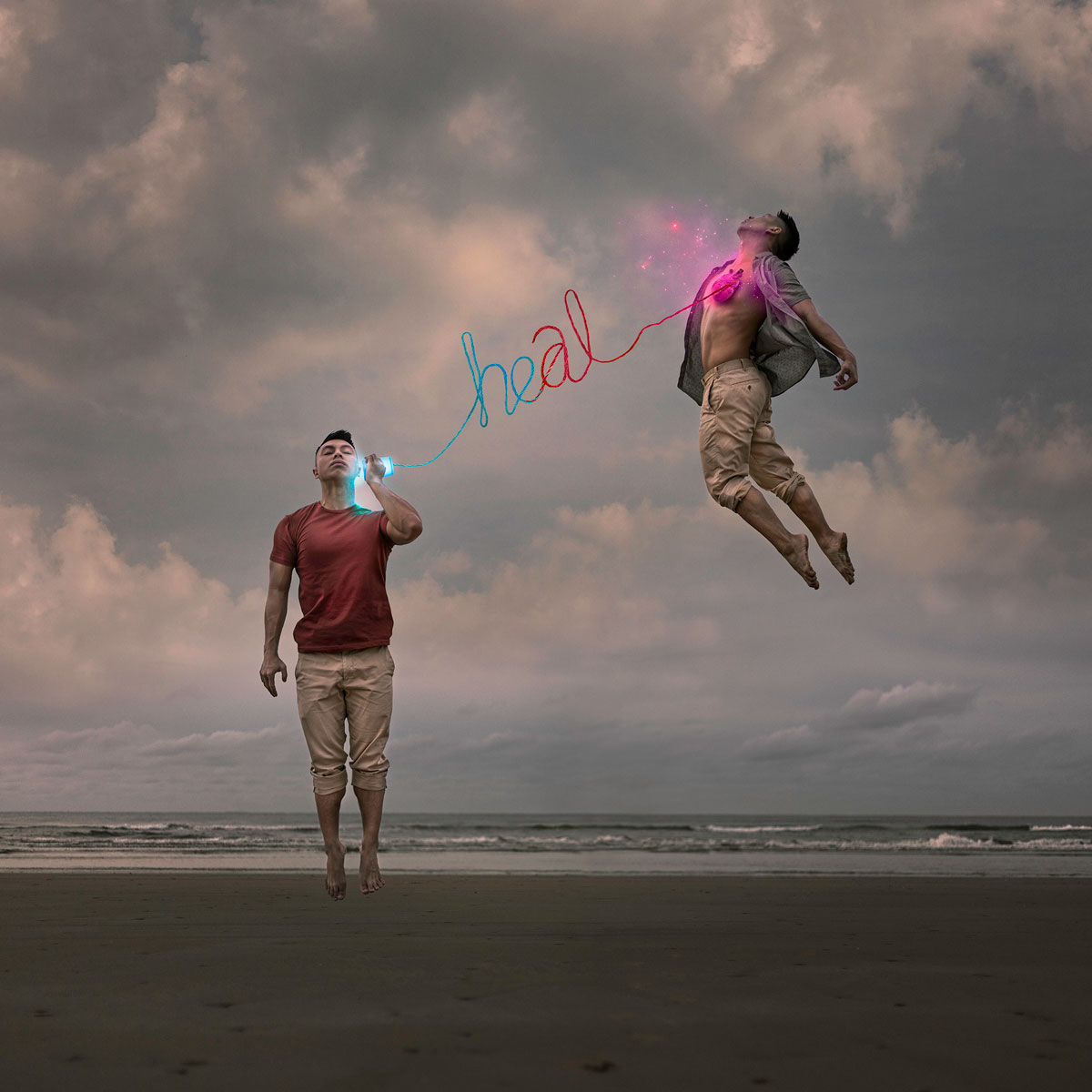
‘(HEAL)th’
“Being able to talk to someone without the fear of being judged, is one of the most important things on the road to recovery. It may even sometimes go both ways. Being able to talk to speak from the heart AND allowing ourselves to listen. Listening, to understand… not to sympathize, but perhaps to give empathy a chance.”
– Adam Hague, conceptual self portrait artist and photographer, Brunei and UK.![]()
![]()
![]()